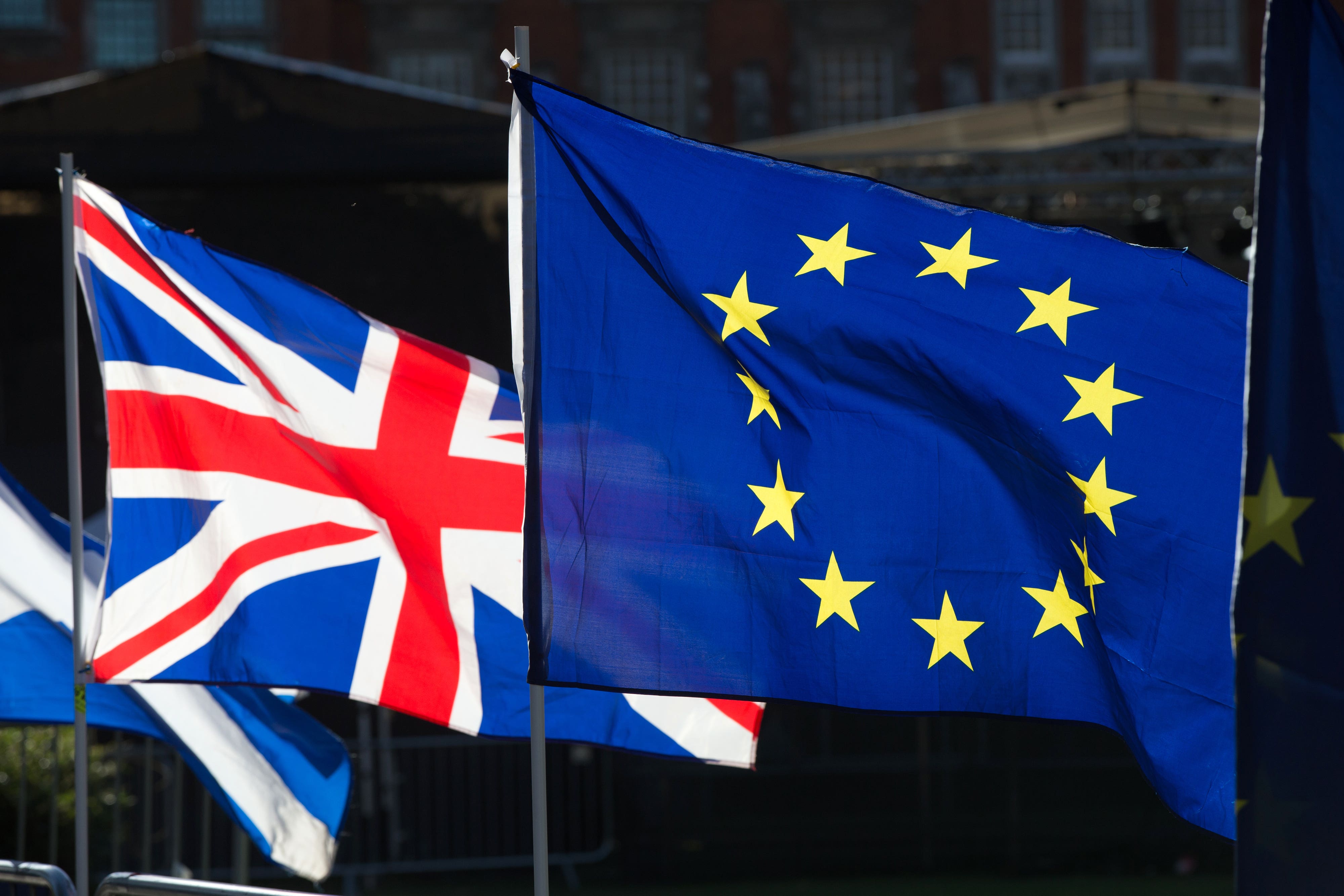Northern Ireland Protocol deal ‘by no means done’, Sunak says
The Prime Minister played down prospects of an imminent agreement with the EU.

Your support helps us to tell the story
From reproductive rights to climate change to Big Tech, The Independent is on the ground when the story is developing. Whether it's investigating the financials of Elon Musk's pro-Trump PAC or producing our latest documentary, 'The A Word', which shines a light on the American women fighting for reproductive rights, we know how important it is to parse out the facts from the messaging.
At such a critical moment in US history, we need reporters on the ground. Your donation allows us to keep sending journalists to speak to both sides of the story.
The Independent is trusted by Americans across the entire political spectrum. And unlike many other quality news outlets, we choose not to lock Americans out of our reporting and analysis with paywalls. We believe quality journalism should be available to everyone, paid for by those who can afford it.
Your support makes all the difference.Rishi Sunak has said a deal with the European Union on fixing issues with the Northern Ireland Protocol is “by no means done”.
The Prime Minister appeared to play down the prospect of an imminent agreement, amid speculation one could be announced early next week.
Mr Sunak earlier had a “positive discussion” with European Commission President Ursula von der Leyen, with the pair pledging to “remain in close contact over the coming days” on securing a deal aimed at breaking the impasse over the contentious post-Brexit trading arrangements.
In his speech to the forum, Mr Sunak suggested there is still a way to go.
There isn’t a deal that has been done, there is an understanding of what needs to be done
“We’re engaging in those conversations with the European Union all the time and we have been for a while, but what I’d say is there is still work to do,” the Prime Minister said.
“There are still challenges to work through. We have not resolved all these issues.
“No, there isn’t a deal that has been done, there is an understanding of what needs to be done.”
The Prime Minister added that “we’re working through (the issues) hard and we will work through them intensely with the EU, but we are by no means done.”
A readout of his meeting with Ms von der Leyen appeared to offer a more upbeat assessment.
A Downing Street spokesperson said: “They agreed that there had been very good progress to find solutions. Intensive work in the coming days is still needed at official and ministerial levels.
“The leaders agreed to remain in close contact over the coming days.”
European Commission Vice-President Frans Timmermans also struck a positive note, saying “things are progressing quite well”.
“I’m not privy to all the negotiations, but my colleagues are quite optimistic. I see there’s a willingness on both sides to find a compromise, to find a way out,” he said.
Mr Sunak’s trip to the German summit came a day after his meetings with the five main Stormont parties in Belfast to gain their support.
However, he was warned by the DUP, the most vocal critics of the protocol, that his proposed deal did not go far enough.
In a weekend message to the unionist party’s members, DUP leader Sir Jeffrey Donaldson said: “Progress has been made in some areas and while that is welcome, in other key areas it currently falls short of what would be acceptable and required to meet our seven tests.
“I have indicated to the Prime Minister that it is important he agrees the right deal rather than a rushed deal.
“Solutions must be found which respect Northern Ireland’s place within the United Kingdom and its internal market and deal with the democratic deficit created by the protocol.”
The term “democratic deficit” is used by Northern Ireland unionists to describe the application of EU rules in the region without local politicians having an influence on them.
The Prime Minister in Munich cited “the democratic deficit that sits at the heart of the protocol as it’s currently constructed” as one of the issues that need to be resolved.
Mr Sunak may have pushed EU leaders for further concessions on the oversight role of the European Court of Justice, but the European Commission is unlikely to budge on its red line – that the court has the final say on single market issues.
Any compromise over the court’s jurisdiction will also anger eurosceptic Tory backbenchers in the European Research Group, who could rebel if the changes are put to a vote in the Commons.
The UK and the EU have been engaged in substantive negotiations over the workings of the Protocol, which was included in the Withdrawal Agreement to ensure the free movement of goods across the Irish land border after Brexit.
The protocol instead created economic barriers on trade being shipped from Great Britain to Northern Ireland.
It has proved to be deeply unpopular with unionists, who claim it has weakened Northern Ireland’s place within the UK, and the DUP is blocking the functioning of devolved government in Stormont in protest at the arrangements.
Mr Sunak also met German Chancellor Olaf Scholz at the Munich summit, though No 10’s readout of the talks suggested the Northern Ireland Protocol did not come up.
Irish premier Leo Varadkar expressed his wish to see a “positive outcome” to UK-EU negotiations in a phone call with Ms von der Leyen.
An Irish Government spokesperson said the European Commission President briefed the Taoiseach on the talks and that he “hoped for an agreement that can pave the way for restoration of the institutions under the Good Friday Agreement”.